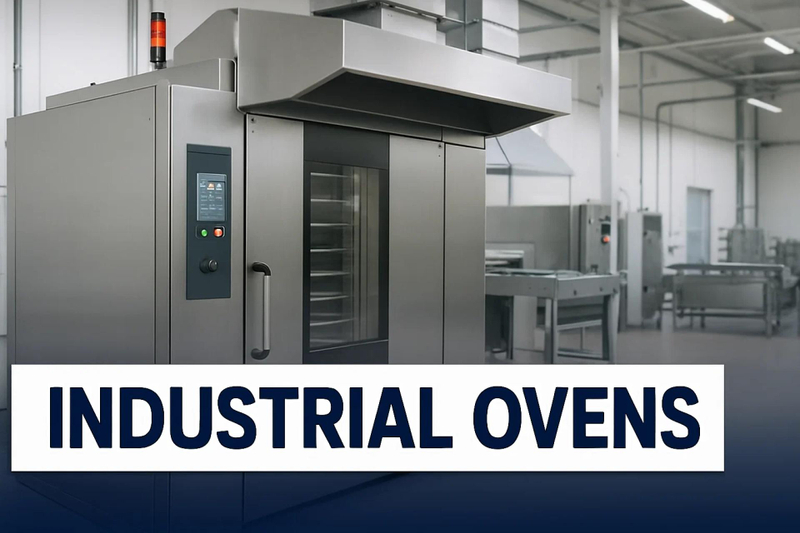INDUSTRIAL OVENS
Industrial ovens have become a cornerstone of modern manufacturing, playing a vital role in processes ranging from food crisping to aerospace composite curing. No longer just basic heating chambers, these machines have transformed into advanced technological systems that ensure higher quality, improved productivity, and maximum efficiency across industries.
What Are Industrial Ovens?
At their core, industrial ovens are thermal processing devices designed to heat, cure, bake, or dry materials at precise temperatures and durations. Their applications are vast—think baking bread in commercial quantities, heat-treating metals for automotive parts, or sterilizing equipment in pharmaceuticals. Unlike standard kitchen ovens, industrial ovens are engineered for higher performance, larger volumes, and specialized requirements.
Types of Industrial Ovens
Industrial ovens come in a variety of designs and sizes, each tailored to different industrial challenges:
- Batch Ovens: Ideal for variable production, these ovens treat materials in “batches,” supporting flexibility and smaller runs.
- Continuous Ovens: Perfect for high-throughput operations, they process items in a constant stream for maximum efficiency.
- Walk-in/Truck-in Ovens: Built to accommodate massive loads or unwieldy parts, enabling easy loading/unloading.
- Tray Dryer Ovens: For delicate or sensitive materials that require processing in a controlled, oxygen-free environment.
- Specialized Designs: Including cleanroom ovens, high-temperature models, and custom configurations.
Most Useful Links »
Innovations Driving the Industry
1. Technology and Automation
Gone are the days of manual guesswork. Today’s industrial ovens leverage IoT (Internet of Things), enabling real-time monitoring, predictive maintenance, and granular process control. Advanced sensors and AI-driven analytics allow manufacturers to optimize baking curves, reduce downtime, and receive alerts before issues escalate. Automation also enables seamless integration with other processing equipment, streamlining the entire production line.
2. Energy Efficiency and Sustainability
Modern industrial ovens place a heavy emphasis on energy efficiency. Innovations like improved insulation, energy recovery systems, and hybrid heating using gas, electric, and infrared sources drastically reduce operational costs and environmental impact. Some cutting-edge models adopt renewable energy, further lowering emissions and helping companies meet strict environmental regulations.
A case in point: Induction heating solutions, such as Bühler Group’s OptiBake, are achieving up to 50% reductions in energy consumption versus traditional gas-fired ovens, while eliminating combustion-related pollutants.
3. Customization and Flexibility
No two industries are identical, so the demand for modular, scalable, and customizable ovens is rising. From food processing—where hygiene and precise temperature control are paramount—to the electronics sector, where microcomponent curing requires millidegree accuracy, manufacturers now offer fully tailored solutions that combine efficiency with exacting standards.
4. Advanced Materials and Ergonomic Designs
The use of high-performance ceramics and composites enhances durability and thermal efficiency, resulting in ovens that last longer and consume less energy. Modern ovens are also being designed with operator safety, intuitive interfaces, and ergonomic access in mind, reducing injury risk and improving workplace productivity.
Market Trends and Outlook
The global industrial oven market is projected to exceed $11.85 billion in 2025 driven by automation, rising demand from food processing, automotive, and electronics sectors, and increasingly strict environmental standards. Looking ahead, expect more digitally connected ovens, renewable energy integration, and highly specialized heating solutions to dominate the market.
Final Thoughts
Industrial ovens today are far more than oversized heaters—they’re advanced technological platforms critical to modern manufacturing and quality assurance. As industries seek greener, faster, and more precise processing, the evolution of industrial ovens will continue to mold the future of production worldwide.
Stay connected for more expert tips, industry news, and future-ready solutions in industrial ovens.



